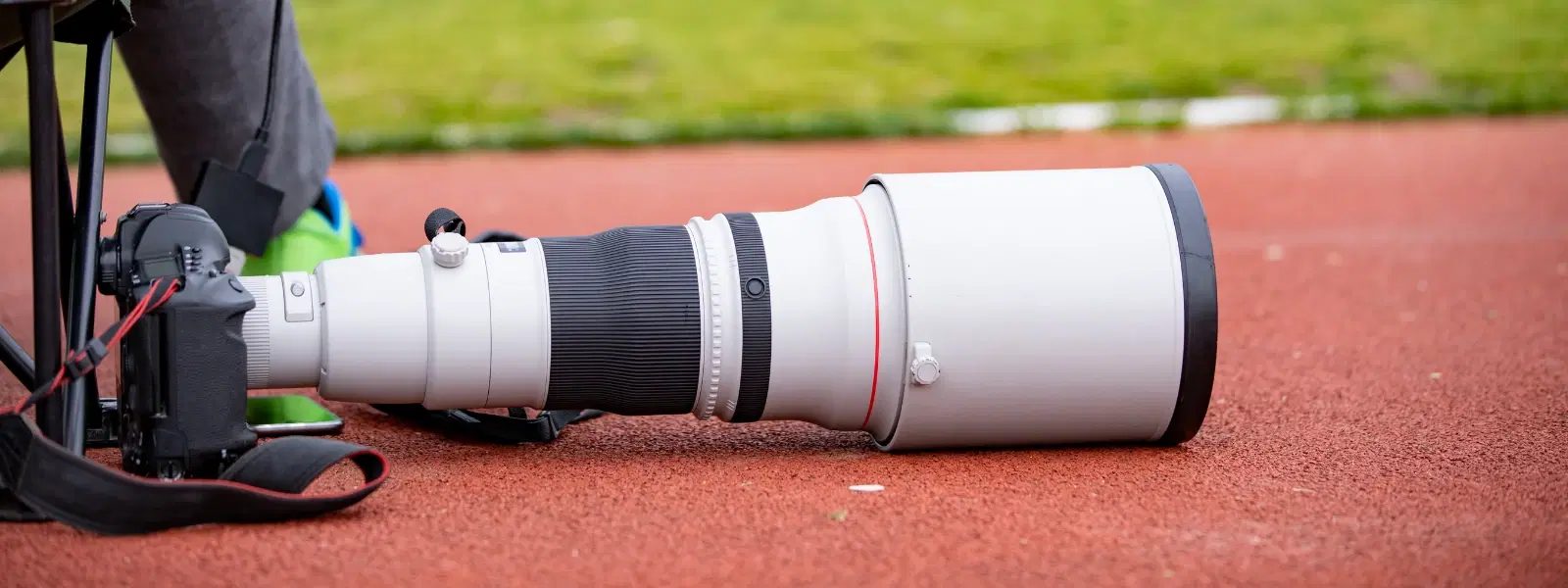
Consumer Electronics
•03 min read
Ever wondered how photographers capture breathtaking shots of distant landscapes or action-packed sports moments? The secret lies in the telephoto camera lens. In this guide, we answer your most common questions about telephoto camera lenses, clarifying how these remarkable devices enhance your photography by magnifying distant subjects and creating stunning compositions.
A telephoto camera lens is designed to magnify subjects that are far away, making them appear much closer without you having to move. By utilising a long focal length lens, these cameras compress backgrounds to enhance subject isolation — a technique that adds depth and dimension to your images. This technology is vital for wildlife photography, sports events, and even creative portrait sessions.
It is important to note that a telephoto lens specifically refers to lenses with a long focal length, whereas a zoom camera lens offers versatility by covering multiple focal lengths, which can include telephoto ranges. In some cases, telephoto zoom lenses provide the best of both worlds for flexibility and high magnification.
There are several types of telephoto camera lenses available to cater to different photography needs:
These lenses, typically in the 85mm-135mm range, are perfect for portrait photography. They provide a natural perspective and a beautifully blurred background, ideal for stylish portraits.
Ranging approximately from 135mm to 300mm, these lenses are a favourite among sports and wildlife photographers due to their versatility and balance between zoom capabilities and portability.
With focal lengths above 300mm, these high magnification lenses are designed for capturing subjects at extreme distances, making them indispensable in professional wildlife and sports photography.
When deciding on a telephoto camera lens, the choice depends on your specific photography goals. Wildlife enthusiasts should consider lenses with fast autofocus and image stabilisation while portrait photographers may prefer those with wider apertures to achieve a beautiful background blur. For sports photography, lenses that offer high shutter speeds and telephoto zoom flexibility are essential to capture fast action with precision.
The benefits of using a telephoto lens include the ability to capture distant subjects with clarity and to create dramatic background compression that elevates your photos. However, there are some considerations: telephoto lenses are often bulky and heavy, and investing in a high-quality DSLR telephoto lens can be expensive. For example, a 300mm lens can typically magnify subjects approximately 5-6x compared to the naked eye, making it ideal for distant scenes yet demanding careful handling.
Effective use of a telephoto lens requires attention to stabilisation, proper lighting, and constant practice. Using tripods or monopods can reduce camera shake, especially when shooting in low light or at large magnifications. Since telephoto lenses often have smaller apertures, ensuring adequate lighting is crucial to maintaining clear images.
Regular practice is also key – learning to track moving subjects, such as in wildlife or sports photography, will greatly enhance your ability to capture crisp, decisive moments with your camera lens for distant subjects.
Pro Tip: Mastering Telephoto Shots
Did you know? Telephoto lenses compress the background, making your subject stand out dramatically. Use this effect creatively to capture stunning wildlife or portrait images that truly speak to your unique perspective.
If you are just beginning your journey into telephoto photography, there are affordable options available such as 70-300mm models that meet both quality and ease-of-use requirements. Ensure that the lens is compatible with your DSLR or mirrorless system, and start by practising with stationary subjects before graduating to more challenging subjects like sports or fast-moving wildlife.
Innovation in mobile photography has introduced compact telephoto lenses for smartphones, offering portability without sacrificing quality. Models like the Apexel 60x Zoom Lens are excellent for casual wildlife or landscape photography, enabling you to capture those once-in-a-lifetime moments with impressive detail.
A telephoto camera lens magnifies distant subjects, making them appear closer while maintaining excellent image quality, ideal for capturing clear shots from afar.
A telephoto lens is defined by its long focal length to capture distant subjects, whereas a zoom lens offers the flexibility of adjusting focal lengths and can cover telephoto ranges among others.
They can be heavy and expensive, often necessitating additional stabilisation equipment like tripods to prevent camera shake.
A 300mm lens can magnify subjects roughly 5-6 times compared to unaided vision, though the exact magnification can vary with your camera's sensor size.
Yes, beginner-friendly options like 70-300mm lenses offer a great introduction to telephoto photography, combining affordability with versatile features.
Telephoto camera lenses are indispensable for capturing images that require the clarity and detail of distant subjects. Whether your photography involves wildlife in natural habitats, fast-paced sports action, or elegant portraits, these lenses help you achieve a unique viewpoint. With features like NeuCoins rewards on Tata Neu, and the ease of shopping across reliable platforms like Croma, you can enjoy not only a range of high-quality products but also added benefits that make every purchase rewarding. Express Delivery is available in selected locations for orders placed before 6pm — check availability to experience convenience and trust in your tech purchases.
Embrace the art of photography with the right telephoto lens and see your creativity come alive. Understand the ins and outs of your equipment, practise consistently, and enjoy the benefits of a well-curated shopping experience on Tata Neu.